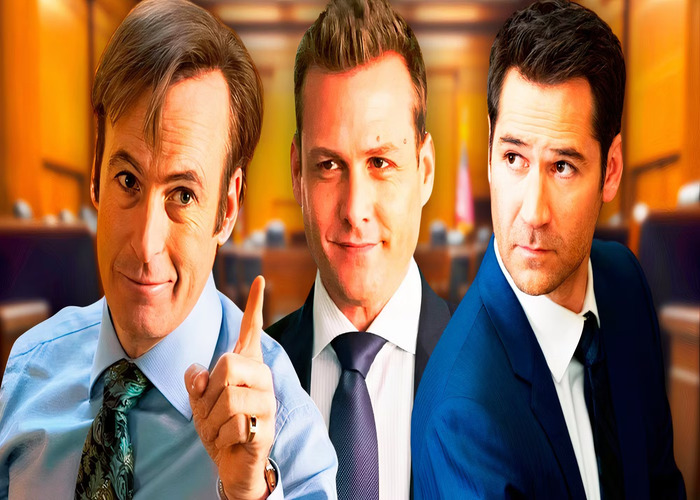Netflix vs. Reality: What Legal Dramas Get Right (and So Very Wrong) About Lawyers

If you've ever binged Suits, The Lincoln Lawyer, or How to Get Away with Murder, chances are you’ve imagined yourself walking into court with a killer closing argument, solving cases with a flash of genius, or running a high-powered law firm from a sleek office in Manhattan. But how close are these shows to real life?
Let’s break it down—what Netflix gets right about being a lawyer, and where it dramatically bends the truth. Whether you're a law student, an aspiring lawyer, or just someone hooked on courtroom drama, here's the real story behind the screen.
At Presidency University's Presidency School of Law, law students are encouraged to critically analyse legal pop culture, appreciating the inspiration while grounding their understanding in real-world practice.
What Netflix Gets Right
- 1. The Pressure is Real
One thing most legal dramas nail is the high-stakes nature of the job. From tight deadlines to unpredictable clients and long hours, these shows reflect the stress and intensity lawyers actually face—especially in big firms or litigation-heavy roles. Students at Presidency University are trained to develop resilience and professionalism early on, preparing for the rigors of litigation or corporate law.
- 2. Lawyers Do Shape Lives
In The Lincoln Lawyer, Mickey Haller takes on cases that affect his clients’ futures, freedom, and dignity. This is one aspect TV gets spot-on. Lawyers have a real impact on people’s lives, especially in criminal law, family disputes, and public interest litigation. Lawyers have the power to change lives—something deeply emphasized in the holistic legal education offered at Presidency School of Law.
- 3. Courtroom Skills Matter
Ever watched How to Get Away with Murder and been blown away by Annalise Keating’s courtroom command? While real-life courtrooms aren't quite that dramatic (and shouting "Objection!" every two seconds would get you a reprimand), the importance of preparation, persuasion, and presence is very much true. Courtroom advocacy, taught through moots and simulations at Presidency School of Law, remains one of the most vital skills in any legal career.
What Netflix Gets So Wrong
- 1. Instant Justice Isn’t a Thing
In the world of legal dramas, cases are opened and closed within a single episode. In reality? Legal processes are slow. Hearings get postponed, judgments take time, and appeals can drag on for years. The procedural parts—filing petitions, following court protocols, waiting for dates—rarely make it on screen, but they’re 90% of a lawyer’s life.
- 2. One Lawyer Can’t Do It All
TV lawyers are often shown juggling corporate mergers in the morning, defending a murder case at lunch, and drafting divorce settlements by evening. In real life, law is deeply specialized. A corporate lawyer wouldn’t typically take up a criminal defense case, and vice versa. It’s not about being a superhero—it’s about being an expert in your field.
- 3. Glamour is the Exception, Not the Rule
Let’s be honest—Harvey Specter’s wardrobe in Suits has set some unrealistic expectations. While lawyers do dress professionally, most don’t have designer suits or swanky corner offices. Law is more about hard work, research, and perseverance than glamour and designer drinks.
- 4. Ethics Aren’t Optional
A lot of legal shows love to portray lawyers bending or breaking rules to win a case. While it makes for exciting TV, it's legally dangerous and unethical. In reality, lawyers are bound by strict codes of professional conduct. Getting caught tampering with evidence or misleading the court isn’t just bad—it’s career-ending.
Why It Still Inspires
Despite the dramatization, legal shows do inspire many to explore the profession. They showcase law as a tool for justice, social change, and intellectual challenge. They make people curious. And for students, they offer a glimpse—however exaggerated—into the kinds of dilemmas, arguments, and emotions involved in legal practice.
These shows can be a gateway to passion, but it’s important to follow up with real learning—internships, moot courts, case reading, and good old-fashioned research.
Netflix makes law look cool—and sometimes, it is. But the real legal world is slower, more complex, and rooted in procedure and ethics. It may not always have the camera-ready drama, but it’s just as meaningful.
Written by,
Ms. Gargi Singh,
Assistant Professor, PSOL













 Rajanukunte, Yelahanka, Bengaluru, Karnataka, Pin: 560119, India
Rajanukunte, Yelahanka, Bengaluru, Karnataka, Pin: 560119, India
 +91 9022092222
+91 9022092222